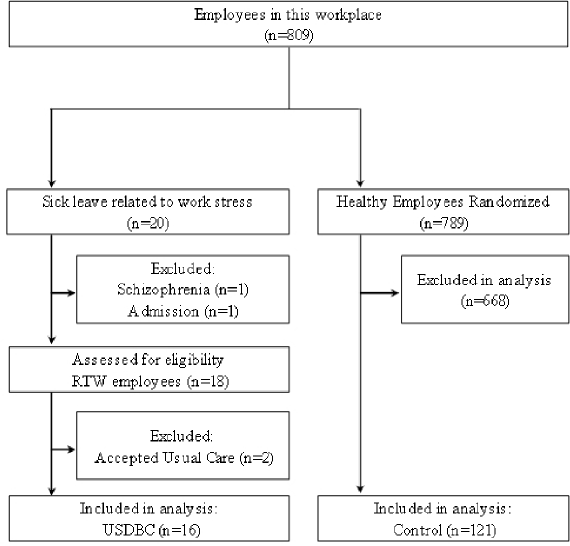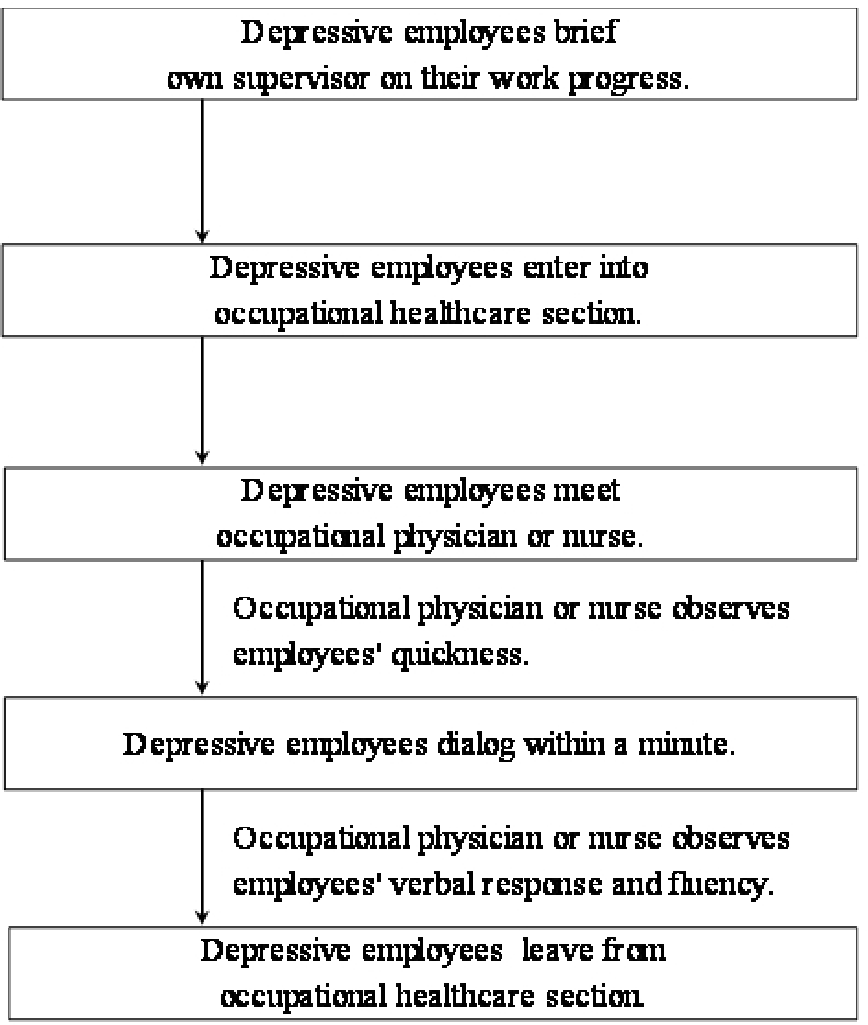No CrossRef data available.
Article contents
EPA-0621 - Ultra-Short Daily Briefings for Sick-Listed Employees with Psychological Problems Strengthen the Sense of Coherence in Occupational Healthcare
Published online by Cambridge University Press: 15 April 2020
Abstract
There are no effective programs on return-to-work (RTW) despite an increase of stress related disorders. We developed an original rehabilitation program,’Ultra-short daily briefings care (USDBC)’. USDBC is based on a key concept of European Framework for Psychosocial Risk Management (PRIMA-EF; WHO, 2008) that provides the good practice guidelines at the workplace. We carried out USDBC at the worksite of Panasonic Healthcare Co., Ltd. to determine whether USDBC facilitates RTW.
To develop and establish the appropriate intervention that reduces depressive severity of sick-listed employees.
The aim of the study was to determine whether USDBC strengthen the sense of coherence (SOC; Antonovsky, 1985).
We compared two groups in a cross-sectional study design: 16 depressed RTW employees (USDBC group) vs. 121 healthy employees (control group) (Fig.1). USDBC group was received the instant face-to-face rehabilitation program in every workday (Fig.2). The primary outcome was the ability to cope with stress, measured by self-reported 13-items SOC scale for Japanese (Yamazaki, 1999).
In the USDBC group, significant changes were observed between baseline and measurement point in SOC score (40.3 vs. 54.4; 95% CI (20.6 to (7.5), whereas in the control group, no significant changes were observed (58.3 vs. 57.9; 95% CI (0.1 to 0.9) (Table.1).
The study suggests that USDBC strengthen the depressed employees’ SOC.
Fig. 1
Participant now climt
Flow diagram showing the selection of USDBC group and control group

Fig. 2
Intervention with USDBC
Depressive employees behave according to this flow in every workday.

Table 1
Subjects’ characteristics and SOC.
| Gender | MedianAde(Range) | MeanSOC | 93% CI | P-value | |||
|---|---|---|---|---|---|---|---|
| Male | Female | Baseline (SD) | Measurtnentpoint (SD) | ||||
| USDBC group (n=l6) | 12 | 4 | 39 (32 - 53) | 40.3(12 4) | 54.4 (8.8) | -20.6 to-7.5 | < 0.001 |
| Control group (n=121) | 94 | 27 | 41 (21 - 59) | 58 3(9.4) | 57.9(10 1) | -0 1 to 0.9 | 0.10 |
In the USDBC goroup, significant change was found between baselne and tneasurment point. In the control group, no significant change was found.
- Type
- E04 - e-Poster Oral Session 04: Therapy and Consultant liaison psychiatry, miscellaneous
- Information
- European Psychiatry , Volume 29 , Issue S1: Abstracts of the 22nd European Congress of Psychiatry , 2014 , pp. 1 - 2
- Copyright
- Copyright © European Psychiatric Association 2014





Comments
No Comments have been published for this article.